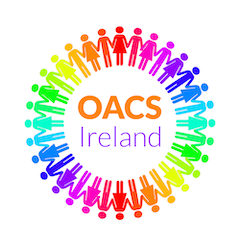What is Fetal Anti-Convulsant Syndrome
and what does it mean?
Fetal Anti-Convulsant Syndrome is caused when a mother uses anti-convulsant medication during pregnancy (also known as Anti-Epileptic Drugs, or AEDs: AEDs are not only used to treat epilepsy but are also used to treat pain, migraine, bi-polar and other mental health conditions).
One of the challenges that can occur for the pregnant mother with epilepsy is that some mothers tend to have more severe seizures during pregnancy.
It is because of this that some doctors will up the dosage during the pregnancy which can make the fetus more susceptible to problems during pregnancy.
The risk of disability varies according to the specific drug taken; however, there are some patterns to be seen in them all.
Fetal anticonvulsant syndrome(s) are/is not a 'genetic' condition in the usual sense but current opinion is that it is in the way these drugs are metabolised by some pregnant women, and/or their affected children, predisposes the unborn baby to damage.
Many side effects of the fetal anticonvulsant syndromes involve the following areas:
- Spina bifida
- Cleft lip and palate
- Facial and skull
- Limb defects
- Ear malformations
- Skeletal malformation
- Heart, kidney, urinary tract
- Sexual organ malformations
- Developmental delay
- Autism Spectrum Disorders (ASDs)
- Attention Deficit Hyperactivity Disorder (ADHD)
Current opinion of Fetal Anti-Convulsant Syndromes:
Not only one Anti-Convulsant Drug causes Fetal Anti-Convulsant Syndromes,
But the majority of Anti- Convulsant Drugs (AED’s), around 10 of which, includes the newer drugs, that may cause the condition Foetal Anticonvulsant Syndromes in various degrees.
Low Dosage:
The lowest possible dose of anti-convulsant medication is recommended along with constant monitoring of the amount of the drug (serum concentration).
Today it is recognised FACS affects males and females in equal numbers. Epilim (sodium valproate) effects 30–40% of children with major or minor malformations, including autism with a 55% chance of a mother on Epilim having a second child born with Foetal Valproate Syndrome (FACS).
Studies Indicate:
That Fetal Valproate Syndrome is associated with a greater risk of neurological and cognitive abnormalities than other anti-convulsant medications
Neuropsychological Assessment
A neuropsychological assessment will determine if there are learning or behavioral difficulties. Basic genetic tests may be carried out to rule any other non-related medical conditions.
Children diagnosed with FACS
Should have a full medical investigation, including heart, kidney scans, along with hearing and vision assessments
